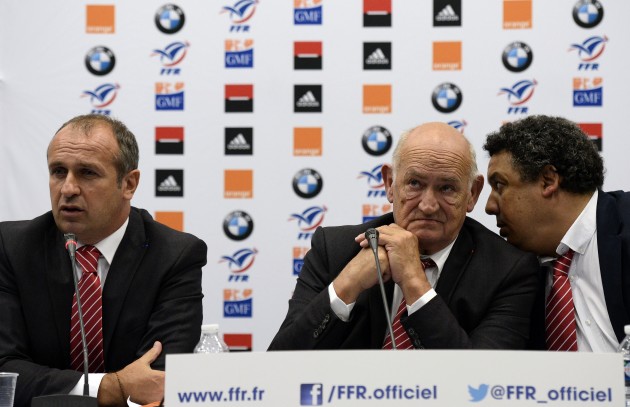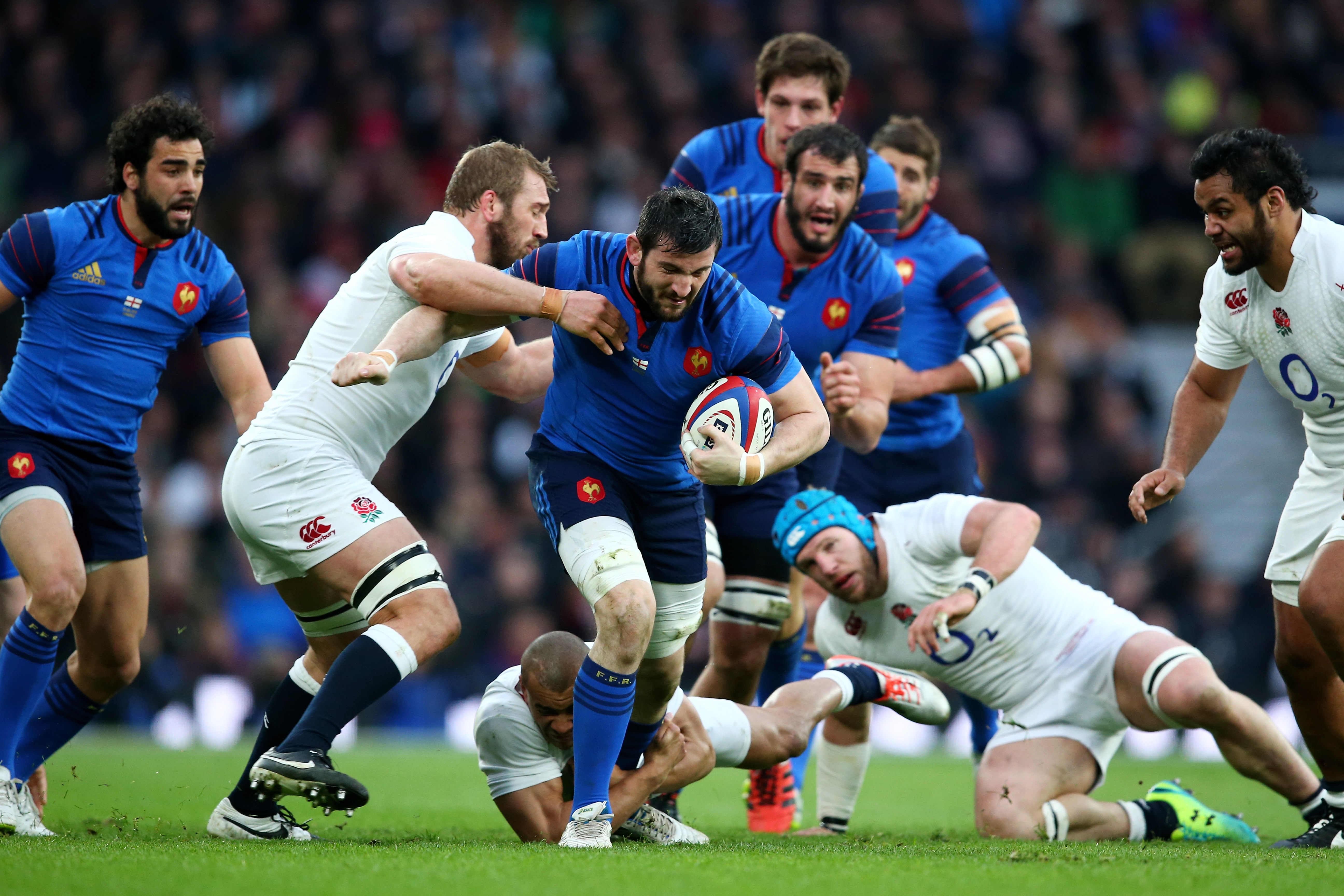Serge Blanco and Bernard Laporte may both challenge incumbent Pierre Camou for the top job when the French federation elects a new president next year. It promises to be a clash of philosophies as much as personalities…
The successor to Philippe Saint-André will be announced next month, but that decision will have only a limited bearing on the long-term fortunes of the national team. The crucial selection comes in December 2016, when the Fédération Française de Rugby (FFR) elects its new president. The incumbent, Pierre Camou, has been in the post since 2008, having been re-elected in 2012, and it’s believed he will stand for a third term despite the fact he turns 70 in August.
A possible alternative is Camou’s right-hand man, Serge Blanco, one of the FFR’s eight vice-presidents and a man who is in many respects the face of French rugby. After his glorious career as a player, Blanco moved effortlessly into business and administration, opening a successful chain of clothing stores as well as a health farm, and also running the Ligue Nationale de Rugby (LNR, the French clubs’ governing body) from 1998 to 2008.
He left the position to join the FFR, where he has been the driving force behind Le Grand Stade de Rugby, the FFR’s new 82,000-seat national stadium that will open in 2020 to the south of Paris.
Power Serge
Blanco is a divisive figure within French rugby, splitting opinion between those who see him as a brilliant and charismatic administrator and those who regard him as a Machiavellian figure.
His pronouncements in February about the possibility of his standing for the presidency next year were, for many, further proof of his slipperiness. In an interview with broadcaster RTL, Blanco was asked if he had an eye for the role. “Yes, of course,” he replied. Two and a half hours later, he issued a statement to a press agency in which he said his words had been misinterpreted and that he was fully supportive of Camou.
Not for nothing did Toulon owner Mourad Boudjellal liken Blanco in 2012 to “Doctor Jekyll and Mr Hyde”, a man who “has become the most eminent member of French rugby’s oligarchy”.
Laporte the reformist
The ‘oligarchy’ is the FFR, seen by an increasing number of people in France as responsible for holding back the development of rugby. Head of the malcontents, unofficially, is Bernard Laporte. The former France coach is in his last full season at Toulon (he will share the reins

“I feel the necessity to reform the sport,” says Toulon coach Bernard Laporte (Pic: AFP/Getty Images)
with Diego Dominguez at the start of 2016 before stepping down six months later), and Laporte is being encouraged to run for the presidency by those who share his views that the FFR is in urgent need of overhaul.
In a lengthy interview in last week’s Midi Olympique, the 50-year-old Laporte confirmed he was thinking about standing for the presidency and that he would announce his decision at the end of this year. “I don’t have the personal ambition to become president of the Federation,” he explained. “But I feel the necessity to reform the sport.”
Above all, Laporte wants to decentralise the way rugby is run in France, investing more power in the regions to make decisions instead of referring everything – such as a red card in a junior game – back to the FFR in Paris.
Laporte, who served two years under the centre-right Nicolas Sarkozy as Secretary of State for Sports, believes that the notorious French bureaucracy is constraining rugby. “We must simplify things and make the life of directors and the clubs easier,” said Laporte, adding that he wanted to improve the structure of youth, amateur and women’s rugby in France.
Innovation, not stagnation
The word he used on more than one occasion was ‘innovation’, and it’s true the FFR isn’t exactly overflowing with this quality. Look at the way the new France coach will be elected. A panel of seven wise man will make the ultimate decision – Camou, Blanco, Jo Maso, Jean-Claude Skrela, Didier Retière, Jean-Pierre Lux and Jean Dunyach. Only Blanco and Retière are under 65.
For too long, in Laporte’s opinion, the FFR has been a cosy cartel that rarely engages with those outside its circle of trust. “Without opposition, it’s the dictatorship,” says Laporte. “A
federation must move, bubble (with ideas). I don’t mean that the people in place today are incompetent. I am for new ideas carried by new people.”
Laporte is also for greater transparency within the FFR, telling Midi Olympique that he would like to know, for instance, what became of the €28m that the FFR earned during the 2007 World Cup that was held in France.
Such questions are unlikely to go down well at the FFR, but they will surely strengthen the support of Laporte’s followers who, like him, believe that more transparency, less bureaucracy and above all, greater innovation are the key to revitalising French rugby.






